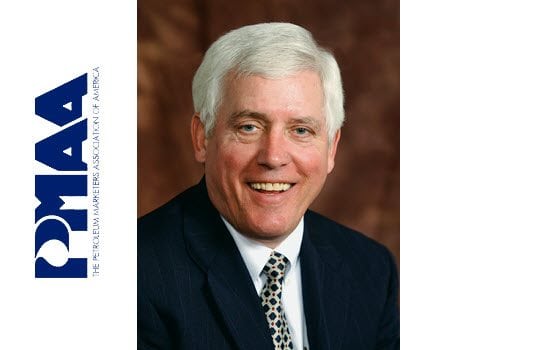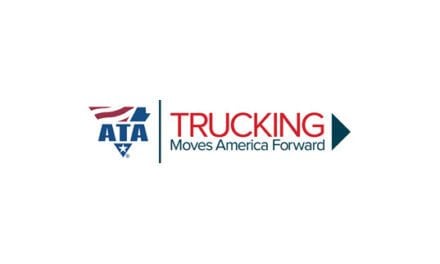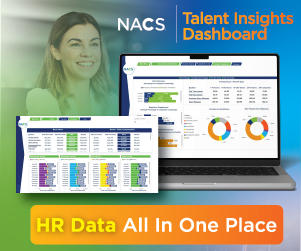FMN: I certainly provided my fair share of coverage on that issue and there was plenty of excitement, of the wrong kind, at the time. But along the lines of your comment I think the big-box folk had some expectations that didn’t quite turn out as planned.
Gilligan: I can remember Walmart–I don’t remember what year 2004 2005–in their year-end statement saying we would’ve made a lot of money this year if we hadn’t sold gas for below cost for so long. So even Walmart learned that you can lose a lot of money selling gasoline and I think they’ve become a pretty good competitor. They use gasoline to drive traffic, but they realized they have to be competitive but they don’t have to be predatory.
FMN: What have been some of the major accomplishments on the heating oil side?
Gilligan: One of the big deals was in 2001 when we got NORA enacted. We had been working on that for five or six years. John Huber worked for me at the time and he left to run NORA. And then we’ve had the reauthorization battles with NORA and finally we got it done last year for another five year stint, which is important. That was an enormously important initiative.
FMN: Heating oil is obviously facing challenges-noting new there–most recently high oil prices which have settled down. What are your thoughts on the future of heating oil?
Gilligan: A lot of optimism comes with the price collapse of 2014. That gave heating oil dealers a lot of breathing room against cheap natural gas and politicians pushing natural gas expansion under environmental or climate change initiatives. It’s given all of these companies a chance to catch their breath, and it’s reducing the loss of customers. I also think blending heating oil with biodiesel and moving to lower sulfur oil is going to change the image quite a bit to being perceived as a more environmentally friendly fuel. I think there are a lot of positives on the horizon.
FMN: As we start down this road of unexpected but overwhelming U.S. energy resources what you see for the industry?
Gilligan: I’m convinced we will be energy independent well within my lifetime, presuming I live another 10 years or so. If only the environmentalists would just get out of the way. We are on the threshold of changing the world of energy and being energy independent and changing the whole global cycle to where we’re sending money to people that hate us, and the environmentalists are worried that the world’s temperature is going to go up a 10th of a degree at some point down the road.
I’m really not making fun of the climate people because they are serious. They want to crimp consumption of fossil fuels but they don’t have an alternative. Fossil fuels have lifted so many millions of people out of poverty, and the folks that want to crimp fossil fuels simply say let’s push them back in the poverty. This whole thing with windmills and solar panels and all of that-it’s really too bad that they have distorted the realities on this. Nobody wants to pollute the planet, and the industry has gone a great way toward reducing carbon consumption, but some of the environmentalists just want the total end of fossil fuels. And they try to make you feel guilty if you are consuming fossil fuels.
So if the environmentalists would just be responsible and let the energy be developed responsibly without this overarching evil, destruction of the planet mentality I think things could be moving along a lot quicker.
But, I still think at the end of the day we will reach energy independence because the markets always win. I’ve been in government affairs for 38 to 40 years now, and what I’ve seen time and again is that as much as the government tries to tell the markets what to do, the markets normally do what they want to do. They always find a way and they always win.
FMN: What you think was your greatest accomplishment PMAA
Gilligan: There are two or three things that were pretty exciting. When we managed to finally get some futures market reform provisions [with solid leadership from the New England Fuel Institute] that was a great accomplishment. When you take on investment banks and actually get significant reforms in place–that’s a big deal.
We took EPA to court on the SPCC [bulk plant/terminal] rules and we got a settlement on that. Not too many people take EPA to court and win.
Another one, which was a fun win, was the wet lines issue. Department of Transportation had proposed the retrofitting of every gasoline transport in America to empty the wet lines before they entered the highway and we went to Congress and got an amendment added to the highway bill saying DOT couldn’t do this rule until they got a third-party study performed. We did it as a delaying tactic. We are just trying to slow them down.
But, sure enough, the GAO went over to see what DOT had to justify this rule and they had nothing. They had not one shred of statistical data to justify this rule. It was being pushed politically by a few congressmen on the Hill and they put pressure on DOT to move it, but it was one of those amazing things that was a win for PMAA.
FMN: In your job satisfaction over the years where would you place battling out these regulatory and legislative initiatives?
Gilligan: That’s an interesting question. We’re having our day on the Hill in a couple weeks and we had to shifted back a week because the speaker decided to recess the week that we were scheduled. So we had to shift it back because our members would be disappointed if they did not have a chance for that face-to-face meeting.
But the truth be told, it’s the staff that runs these issues. I’m not belittling the interaction between the business people and a member of Congress, but at the end of the day the things that get done happen because the staff gets them done. That’s the real difference.
I was a statehouse lobbyist in Indiana for 10 years and in that role you work directly with the legislator face-to-face, all the time getting things done. When you come to Washington you find out that there is very little face-to-face business that goes on between Washington lobbyists and an actual member of Congress. Most of it is at the staff level and the average staff member on the Hill is under 32 years old, eager, ambitious and smart. They are looking to make a mark and be successful and that’s where the action is at—convincing the staff that your approach is the better approach and that there is support for it. Most of the lobbying of the actual members of Congress is between the members when they are talking with each other.









